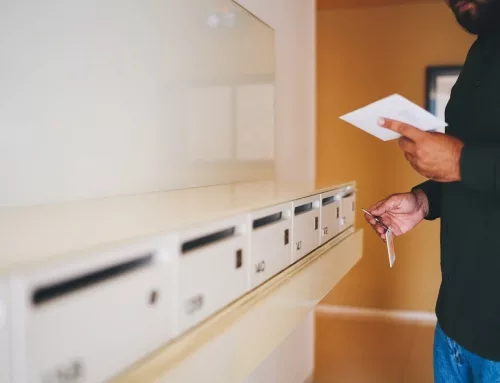With the rising cost of college tuition, many people seek financial aid assistance to make the cost of attending college more affordable. However, some individuals may find that their financial situations hinder them from receiving federal financial aid. One of the most common challenges people face when seeking federal financial aid is owing back taxes to the IRS. But here’s the good news: if you owe the IRS money, you can still pursue financial aid assistance for college. In this article, we’ll explain the options available to pursue federal financial aid when you owe back taxes.

The Consequences of Tax Debt
When you neglect to fully pay tax debt on time, the IRS can file a judgment lien against you. A judgment lien is a claim or legal right against your property that signifies that you have failed to pay tax on that property. A judgment lien can apply to your house, car, investments, financial assets, and personal items. Liens also give a creditor (in this case the federal government) the legal right to keep the property if taxes remain unpaid. If you do not take action against your judgment lien, you will not qualify for federal student aid.
How to Avoid a Lien
Ideally, it is best to avoid having a lien placed against your property in the first place. You can avoid a federal tax lien by filing and paying your taxes on time. If you can’t pay the tax right away, your best option is to establish a streamlined installment agreement (SIA) with the IRS to avoid having a lien placed against your property. Streamlined installment agreements require the full balance of your debt to be paid within six years or before the collection statute of limitations expires, whichever is sooner. Taxpayers are eligible for streamlined installment agreements are if they owe $50,000 or less in taxes, penalties, and interest, and have filed all tax returns.
The IRS rules state that a tax lien won’t be filed if you owe less than $10,000 in back taxes. If your debt is between $25,000 and $50,000, the IRS won’t file a tax lien if you allow SIA payments to be taken directly from your bank account or wages. If you act early and establish a payment plan with the IRS, you have an increased likelihood of avoiding a lien being filed against your property.
How to Get Rid of an Existing Lien
If you already have a lien placed against your property, you have several options to get rid of it. To be free of the lien and restore your eligibility for financial aid, you must either pay off your tax debt in full or set up a direct debit installment agreement with the IRS. Direct debit installment agreements are eligible for taxpayers who owe $25,000 or less, or who can pay down their balance to $25,000. Taxpayers utilizing direct debit payment installments must pay in full within 60 months or before the Collection Statute expires, whichever is earlier.
If you opt to pay the full amount at once, payment can be fulfilled via card, check, money order, or automatic payments from a checking account. Once you pay off your tax debt in full, the IRS releases the lien within 30 days. You will receive a letter from the IRS confirming that the lien has been released, signifying that you are eligible for federal financial aid again.
Whether you decide to pay the full amount at once or enroll in an installment plan, it is in your best interest to pay as quickly as possible. The IRS has a variety of penalty and interest charges that can be applied to your amount owed. The longer you wait to pay, the more charges will accrue, and the more you will owe.
Conclusion
Federal financial aid is still an option for those who owe back taxes to the IRS. But dealing with tax problems and restoring financial aid eligibility can be very difficult. The key to restoring financial aid eligibility is to be proactive in finding a payment agreement with the IRS that avoids liens. Anthem Tax Service can help you navigate the agreement process with the IRS and figure out your best options for moving forward. We can also help you set up payment plans, negotiate the lowest installment amount possible, work to prevent liens from being filed against your assets and assistance with other tax debt relief options. Contact us by email or phone call ((855) 749-2859), and we’ll provide you with relief from tax debt.
With the rising cost of college tuition, many people seek financial aid assistance to make the cost of attending college more affordable. However, some individuals may find that their financial situations hinder them from receiving federal financial aid. One of the most common challenges people face when seeking federal financial aid is owing back taxes to the IRS. But here’s the good news: if you owe the IRS money, you can still pursue financial aid assistance for college. In this article, we’ll explain the options available to pursue federal financial aid when you owe back taxes.

The Consequences of Tax Debt
When you neglect to fully pay tax debt on time, the IRS can file a judgment lien against you. A judgment lien is a claim or legal right against your property that signifies that you have failed to pay tax on that property. A judgment lien can apply to your house, car, investments, financial assets, and personal items. Liens also give a creditor (in this case the federal government) the legal right to keep the property if taxes remain unpaid. If you do not take action against your judgment lien, you will not qualify for federal student aid.
How to Avoid a Lien
Ideally, it is best to avoid having a lien placed against your property in the first place. You can avoid a federal tax lien by filing and paying your taxes on time. If you can’t pay the tax right away, your best option is to establish a streamlined installment agreement (SIA) with the IRS to avoid having a lien placed against your property. Streamlined installment agreements require the full balance of your debt to be paid within six years or before the collection statute of limitations expires, whichever is sooner. Taxpayers are eligible for streamlined installment agreements are if they owe $50,000 or less in taxes, penalties, and interest, and have filed all tax returns.
The IRS rules state that a tax lien won’t be filed if you owe less than $10,000 in back taxes. If your debt is between $25,000 and $50,000, the IRS won’t file a tax lien if you allow SIA payments to be taken directly from your bank account or wages. If you act early and establish a payment plan with the IRS, you have an increased likelihood of avoiding a lien being filed against your property.
How to Get Rid of an Existing Lien
If you already have a lien placed against your property, you have several options to get rid of it. To be free of the lien and restore your eligibility for financial aid, you must either pay off your tax debt in full or set up a direct debit installment agreement with the IRS. Direct debit installment agreements are eligible for taxpayers who owe $25,000 or less, or who can pay down their balance to $25,000. Taxpayers utilizing direct debit payment installments must pay in full within 60 months or before the Collection Statute expires, whichever is earlier.
If you opt to pay the full amount at once, payment can be fulfilled via card, check, money order, or automatic payments from a checking account. Once you pay off your tax debt in full, the IRS releases the lien within 30 days. You will receive a letter from the IRS confirming that the lien has been released, signifying that you are eligible for federal financial aid again.
Whether you decide to pay the full amount at once or enroll in an installment plan, it is in your best interest to pay as quickly as possible. The IRS has a variety of penalty and interest charges that can be applied to your amount owed. The longer you wait to pay, the more charges will accrue, and the more you will owe.
Conclusion
Federal financial aid is still an option for those who owe back taxes to the IRS. But dealing with tax problems and restoring financial aid eligibility can be very difficult. The key to restoring financial aid eligibility is to be proactive in finding a payment agreement with the IRS that avoids liens. Anthem Tax Service can help you navigate the agreement process with the IRS and figure out your best options for moving forward. We can also help you set up payment plans, negotiate the lowest installment amount possible, work to prevent liens from being filed against your assets and assistance with other tax debt relief options. Contact us by email or phone call ((855) 749-2859), and we’ll provide you with relief from tax debt.





